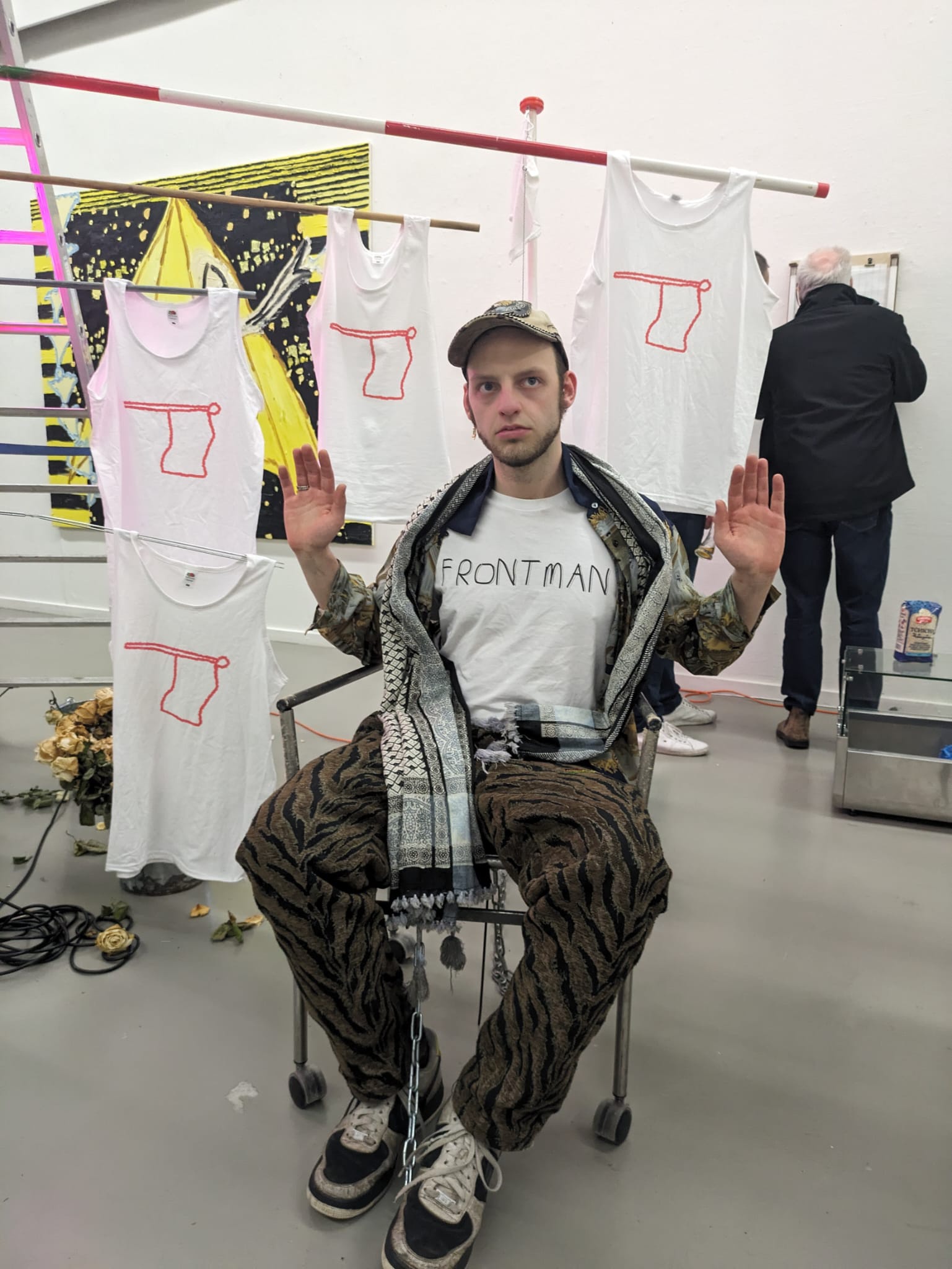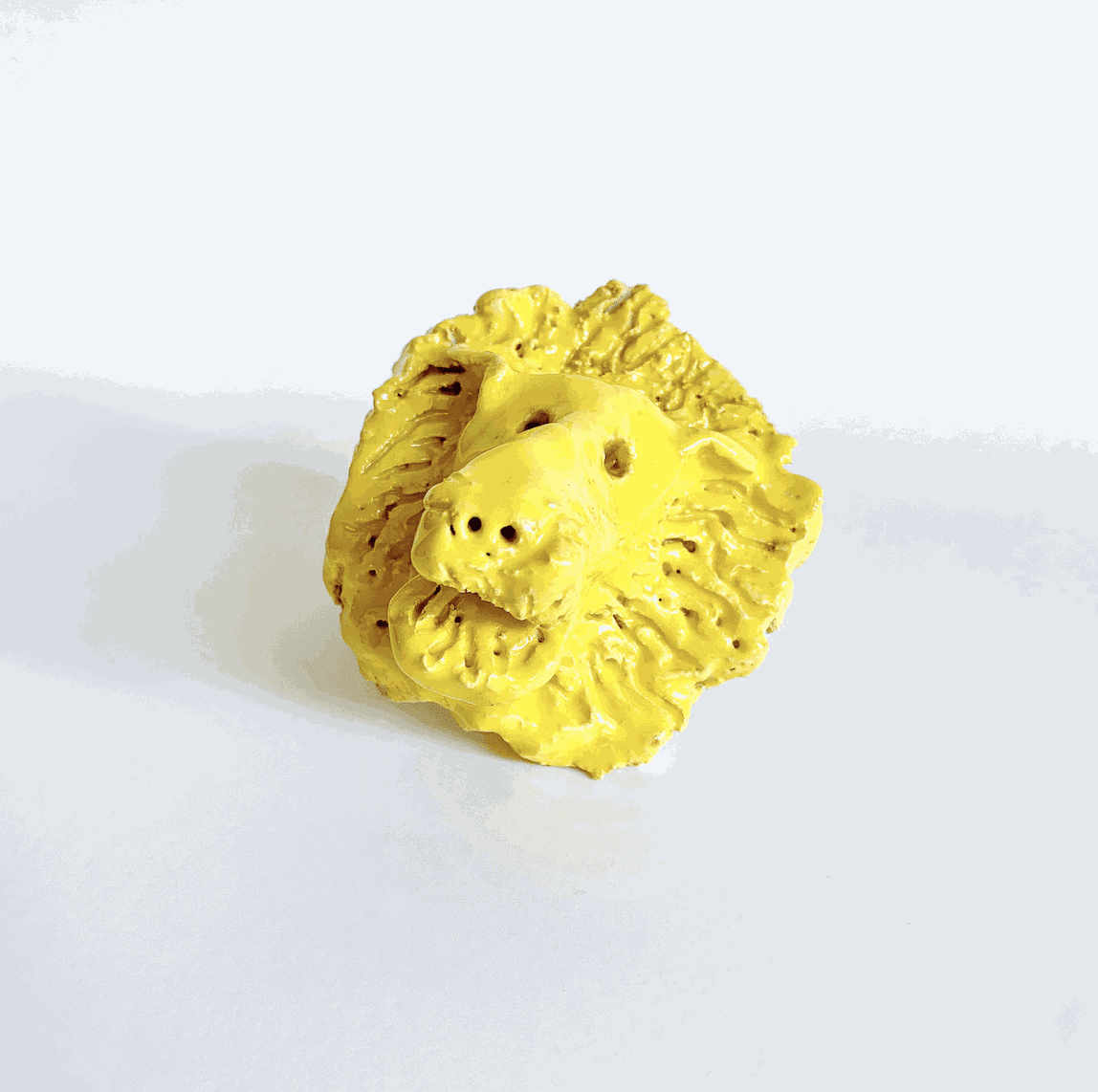
Jannes van Arkel is the unexpected new artist of Sato Gallery! Dutch, rebellious, free, young and very talented. Born in Rotterdam, in 1997, the year of the ox - a very good year to be born, according to him - Jannes grew up in an artistic family that traveled a lot to far places.
Torn between the wish to study anthropology, history and art at the same time, he decided to pursue advertising at Willem de Kooning Art Academy hoping it would satisfy all his desires. He was a bit disappointed with the reality and commercialism of the studies, but being a rather independent mind, he decided to use the advertising tools he was taught to break the system from within. He graduated with honours and was top of his class with an incredible installation that we witnessed at the Willem de Kooning Graduation Show of 2022.

(Jannes van Arkel)
SG: When did you start doing ceramics?
JvA: I started doing ceramics when I was about 5 years old. I attended a children’s arts & crafts class. Somehow ceramics came to me very naturally. My monsters made themselves. And they have ever since. My style hasn’t changed.
SG: Did you always continue doing ceramics, while studying advertising for example?
JvA: Yes, I always kept creating. But another thing that accompanied me in life is curiosity. I’ve tried many different things. Ceramics, however, is something I could always come back to.
After I graduated, I travelled for months and when I returned last year, I felt kind of lost and I didn’t know what to do. So I picked up doing ceramics again. That’s how my first exhibition came to be. I wanted to get back in shape, so I returned to form. It is what I know well and where I feel confident.
A previous moment, was while I was studying. When my home didn’t really feel like my home anymore, because my father got sick. I wanted to return to this ‘childish’ thing, because ‘childish me’ had to grow up quickly, because my home was gone. Well, it wasn’t really gone, but there was no time and attention for me because he was dying. Part of understanding what that meant to me was doing ceramics. It became like a coping mechanism.
"The ceramics, in a way, are just a vehicle."
SG: Would you continue making ceramics?
JvA: Yes, I can’t stop making them. I vomit monsters. It’s no effort. I like making them. They are so cute. I want them to exist. They are nice and kind shapes and I know people feel comfortable around them.
At the same time I present my book 50 Things to Do Without Things, that is a free gift to everyone and researches why we don’t give things for free anymore.

SG: Your exhibition is called Free Monsters; are all your monsters free?
JvA: Not necessarily, because nothing is free. I would like to exchange. An experience for example. I like the idea that one of your collectors says: I’ll take you to my favourite restaurant in Paris. Here is a ticket for the Thalys and see you there. Something different than money. Or maybe someone takes a monster, but comes back as my chair when I go on a date.
SG: I once met a woman on Instagram who knitted me a pair of beautiful baby socks. She said if she would ask for a price, if she would really look into the time and effort that went into those socks, they would be too expensive. Therefor she rather exchanged them for something. I gave her a print. Would it be similar to that?
JvA: This is why I do what I do. As someone who graduated in advertising I enjoy sparking conversation. The ceramics, in a way, are just a vehicle. If there is something that comes kind of close to art in term of what I do, I think its the concept of the questions that I aks and they way I present it. What I really want to make is conversation. This project lives beyond. There are so many things that come to my mind when I hear the kind of story of a woman who knits socks. One is passion and love. She creates something beautiful of love for what she does. She exchanges it for something. It’s beautiful and passionate and funny experience. But another word is privilege. Some people don’t have time to make that choice. And they just need money.



